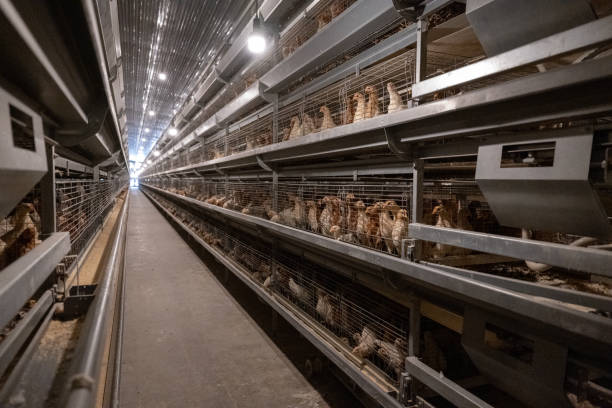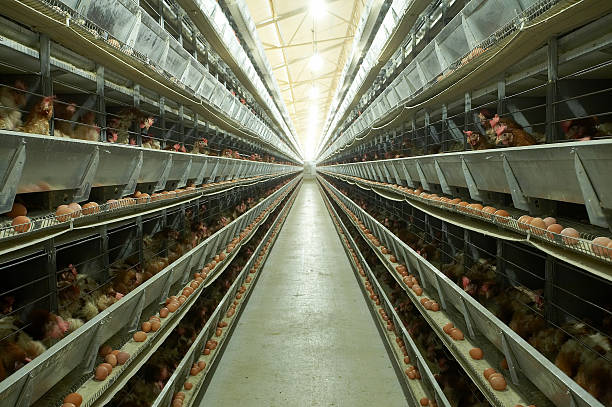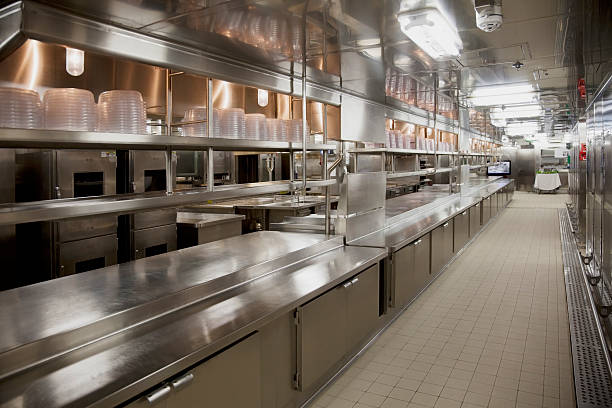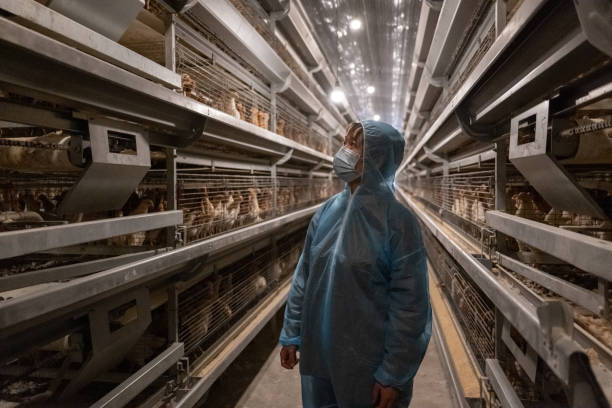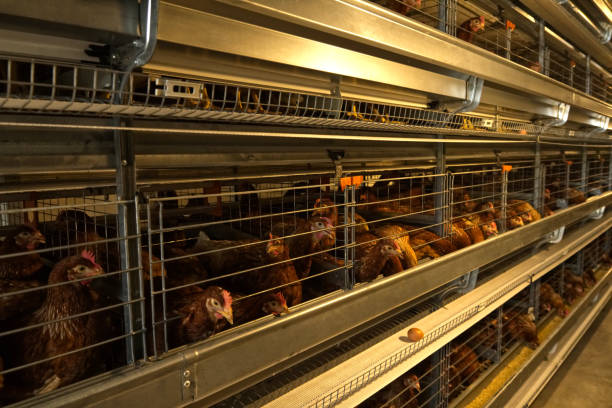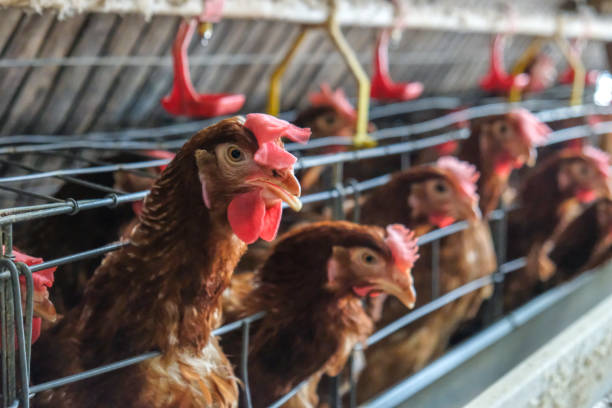Optimizing Your Investment: Affordable 30000 Chicken Cage Prices in Nigeria
Optimizing Your Investment: Affordable 30000 Chicken Cage Prices in Nigeria
Nigeria’s poultry industry is a dynamic landscape, teeming with opportunities for both seasoned farmers and aspiring entrepreneurs. As the demand for chicken meat and eggs continues to rise, optimizing your poultry farm for maximum efficiency and profitability becomes paramount. One of the most critical decisions you’ll make is choosing the right housing system for your birds. For many, the choice falls on chicken cages, offering a controlled environment, improved space utilization, and better management of resources. If you’re considering scaling your operation to house 30,000 chickens, understanding the factors influencing 30000 chicken cage prices in Nigeria is crucial to making a sound investment.
The Lay of the Land: Understanding the Nigerian Poultry Market
Before diving into the specifics of cage prices, let’s take a moment to appreciate the context of the Nigerian poultry market. It’s a sector characterized by a mix of smallholder farms and larger, more commercially-oriented operations. The demand for poultry products is consistently high, driven by a growing population and changing consumer preferences. However, the industry also faces challenges, including fluctuating feed prices, disease outbreaks, and competition from imported products.
Against this backdrop, investing in efficient and cost-effective housing solutions like chicken cages becomes even more important. Cages allow for higher stocking densities, reduced feed wastage, easier egg collection (in the case of layer cages), and improved overall hygiene, all of which contribute to increased profitability.
What Determines 30000 Chicken Cage Prices in Nigeria?
Several factors come into play when determining the price of chicken cages in Nigeria, particularly when you’re looking at outfitting a farm for 30,000 birds. Here’s a breakdown of the key elements:
Cage Type: The type of cage you choose will significantly impact the overall cost. The main types include:
Layer Cages: Designed for egg-laying hens, these cages come in various configurations, including A-frame and H-frame systems. A-frame cages are generally more affordable upfront but may require more manual labor. H-frame cages, on the other hand, offer greater automation capabilities (like automatic feeding, drinking, and egg collection) but come with a higher initial investment.
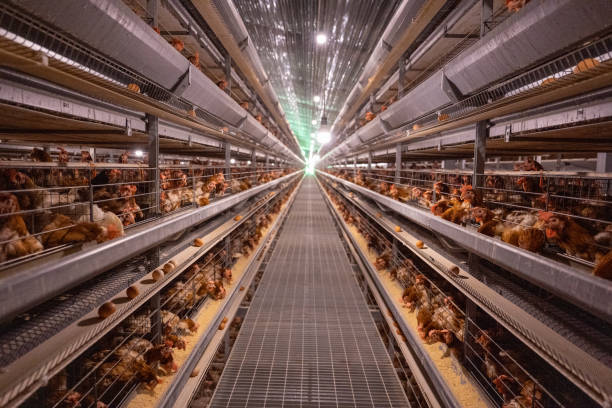
Broiler Cages: Used for raising meat chickens (broilers), these cages are designed to accommodate the rapid growth of the birds. They typically have larger floor spaces than layer cages and focus on optimizing feed conversion rates.
Chick Cages/Pullet Cages: These are for raising chicks, or pullets (young hens), and are often used in the early stages of poultry farming.
Material Quality and Construction: The quality of the materials used in constructing the cages is a major price determinant. Cages made from high-quality galvanized steel will be more durable and resistant to corrosion, extending their lifespan and ultimately providing a better return on investment. Cheaper materials may corrode quickly, leading to cage damage and increased maintenance costs or premature replacement.
Cage System Design: The complexity of the cage system also affects the price. Simple, manually operated cages will be less expensive than fully automated systems with features like automatic feeding, drinking, manure removal, and egg collection. Automation can significantly reduce labor costs and improve efficiency but requires a larger upfront investment.
Manufacturer/Supplier: Different manufacturers and suppliers offer varying prices based on their production costs, profit margins, and brand reputation. It’s wise to compare quotes from multiple suppliers to ensure you’re getting the best possible deal. Look for reputable suppliers with a track record of providing quality products and reliable after-sales service.
Import vs. Local Manufacturing: Chicken cages can be either imported or manufactured locally in Nigeria. Imported cages may be more expensive due to shipping costs, import duties, and currency exchange rates. However, they may also offer higher quality or more advanced features. Locally manufactured cages can be more affordable and may be better suited to the specific needs of Nigerian farmers.
Transportation and Installation Costs: Don’t forget to factor in the cost of transporting the cages to your farm and installing them. These costs can vary depending on the distance from the supplier, the size and weight of the cages, and the complexity of the installation process.
Accessories and Add-ons: The price will also depend on any additional accessories or add-ons you choose to include, such as:
Automatic Feeding Systems: These systems deliver feed to the cages automatically, reducing labor costs and ensuring consistent feed distribution.
Automatic Drinking Systems: These provide a constant supply of fresh water to the birds, improving their health and productivity.
Manure Removal Systems: These systems automatically remove manure from the cages, improving hygiene and reducing the risk of disease.
Egg Collection Systems: These automated systems gather eggs directly from the cages, reducing labor costs and minimizing egg breakage.
Quantity Purchased: Often, suppliers offer discounts for larger orders. Buying cages for 30,000 chickens at once may qualify you for a bulk discount, reducing the overall cost per bird.
Estimating the Investment: A Range of Possibilities
Given the various factors at play, providing a precise figure for 30000 chicken cage prices in Nigeria is challenging without knowing your specific requirements and preferences. However, we can offer a general estimate and a range to give you a better idea of the potential investment.
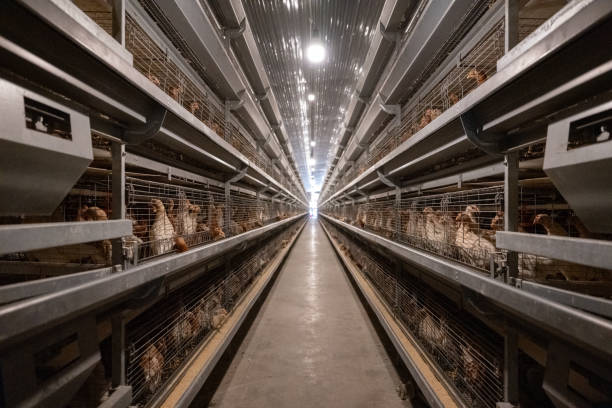
For a basic, manually operated A-frame layer cage system for 30,000 chickens, you might expect to pay anywhere from NGN 15,000,000 to NGN 30,000,000. A more advanced, automated H-frame system could range from NGN 30,000,000 to NGN 60,000,000 or even higher, depending on the level of automation and the quality of the components. Broiler cage prices will also vary depending on the size and design of the cages, but they generally fall within a similar range.
Remember that these are just estimates. The best way to get an accurate price quote is to contact several reputable chicken cage suppliers in Nigeria and provide them with your specific requirements.
Making the Smart Choice: Tips for Optimizing Your Investment
Investing in chicken cages is a significant decision, and it’s important to do your homework to ensure you’re getting the best value for your money. Here are some tips for optimizing your investment:
Define Your Needs: Before you start shopping for cages, take the time to clearly define your needs and priorities. Consider factors such as:
The type of chickens you’ll be raising (layers or broilers)
Your desired level of automation
Your budget
The size and layout of your farm
Your labor availability
Research Different Cage Systems: Explore the different types of chicken cage systems available and compare their features, advantages, and disadvantages. Consider factors such as cage density, ease of use, maintenance requirements, and the potential for automation.
Compare Quotes from Multiple Suppliers: Don’t settle for the first quote you receive. Get quotes from several different suppliers and compare their prices, product quality, and after-sales service.
Check Supplier Reputation: Do your research on the suppliers you’re considering. Read online reviews, talk to other farmers who have used their products, and check their credentials. Choose a supplier with a solid reputation for quality, reliability, and customer service.
Consider Local Manufacturing: Explore the option of purchasing locally manufactured chicken cages. Local manufacturers may offer more competitive prices and be better equipped to provide after-sales support and spare parts in Nigeria.
Inspect the Cages Before Purchase: If possible, visit the supplier’s factory or showroom to inspect the cages in person before making a purchase. This will give you a chance to assess the quality of the materials and workmanship.
Negotiate the Price: Don’t be afraid to negotiate the price with the supplier. You may be able to get a discount, especially if you’re buying a large quantity of cages.
Factor in Long-Term Costs: When comparing cage systems, consider not only the initial purchase price but also the long-term costs of operation and maintenance. Automated systems may have a higher upfront cost but can save you money on labor and other expenses in the long run.
Think About Installation and Training: Ensure that the supplier provides clear instructions and support for installing the cages. Also, inquire about training for your staff on how to operate and maintain the cage system effectively.
Plan for Future Expansion: If you anticipate expanding your poultry farm in the future, choose a cage system that can be easily scaled up. Modular cage systems are a good option for this purpose.
Beyond the Cage: Holistic Farm Management
While choosing the right chicken cages is crucial, remember that it’s just one piece of the puzzle. To maximize your profitability, you need to adopt a holistic approach to farm management, including:
Proper Nutrition: Providing your chickens with a balanced diet is essential for their health and productivity. Work with a qualified nutritionist to develop a feeding program that meets their specific needs.
Disease Prevention: Implement a robust disease prevention program, including vaccinations, biosecurity measures, and regular health checks.
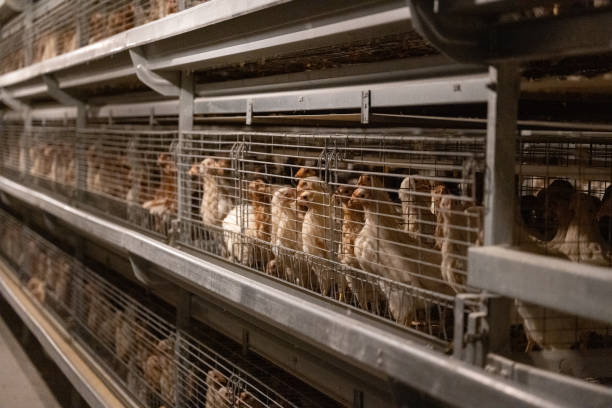
Waste Management: Dispose of manure and other waste products properly to prevent environmental pollution and disease outbreaks.
Record Keeping: Maintain accurate records of your farm’s performance, including feed consumption, egg production, mortality rates, and expenses. This data will help you identify areas for improvement and make informed decisions.
Market Analysis: Stay informed about market trends and adjust your production accordingly to maximize your profits.
The Road Ahead: Investing in a Sustainable Future
Investing in affordable, high-quality chicken cages is a strategic move that can significantly improve the efficiency and profitability of your poultry farm in Nigeria. By carefully considering the factors discussed in this article and adopting a holistic approach to farm management, you can optimize your investment and build a sustainable poultry business that thrives in the long term. As the Nigerian poultry industry continues to grow, embracing innovation and best practices will be key to success. Choosing the right cage system is a vital step in that journey.



